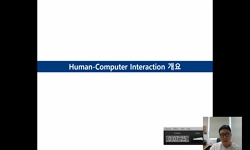The role of interactional corrective feedback in the process of second language (L2) development has been a core research area for many years. One of the benefits of interactional feedback discussed in L2 literature is that it can encourage learners t...
http://chineseinput.net/에서 pinyin(병음)방식으로 중국어를 변환할 수 있습니다.
변환된 중국어를 복사하여 사용하시면 됩니다.
- 中文 을 입력하시려면 zhongwen을 입력하시고 space를누르시면됩니다.
- 北京 을 입력하시려면 beijing을 입력하시고 space를 누르시면 됩니다.
https://www.riss.kr/link?id=A105824818
- 저자
- 발행기관
- 학술지명
- 권호사항
-
발행연도
2010
-
작성언어
-
- 주제어
-
KDC
373
-
등재정보
KCI등재
-
자료형태
학술저널
- 발행기관 URL
-
수록면
97-120(24쪽)
- 제공처
- 소장기관
-
0
상세조회 -
0
다운로드
부가정보
다국어 초록 (Multilingual Abstract)
The role of interactional corrective feedback in the process of second language (L2) development has been a core research area for many years. One of the benefits of interactional feedback discussed in L2 literature is that it can encourage learners to modify their output. In turn, it is widely argued that output promotes accuracy and automatization of retrieval processes. However, seldom has research been conducted into how interactional feedback triggers learner modified output in L2 classrooms. In light of this, the current study aims to study modified output by examining the nature of interactional feedback in L2 classrooms as
well as modified output triggered by this feedback. The study analyzes interactional feedback and modified output observed in 13 classes. Recasts were found to be a dominant type of feedback followed by prompts such as clarification requests, repetitions, and elicitations. When modified output was examined, more than half of the output following recasts was targetlike while output following prompts was more likely to be nontargetlike than targetlike. In addition, in response to clarification requests, learners tended to seek a different way of expressing the same thoughts rather than modifying their initial utterances. The study found that feedback has different functions as a trigger for modified output.
목차 (Table of Contents)
- I. INTRODUCTION
- II. LITERATURE REVIEW
- III. METHODS
- IV. RESULTS AND DISCUSSION
- V. CONCLUSION
- I. INTRODUCTION
- II. LITERATURE REVIEW
- III. METHODS
- IV. RESULTS AND DISCUSSION
- V. CONCLUSION
동일학술지(권/호) 다른 논문
-
- 팬코리아영어교육학회(구 영남영어교육학회)
- 김신혜(Kim, Shinhye)
- 2010
- KCI등재
-
효과적인 초등교사 해외영어연수프로그램 개발을 위한 제언
- 팬코리아영어교육학회(구 영남영어교육학회)
- 강후동(Kang, Hoo Dong)
- 2010
- KCI등재
-
Corrective Feedback through Computer-Mediated Communication in EFL College Level
- 팬코리아영어교육학회(구 영남영어교육학회)
- Juseong Lee
- 2010
- KCI등재
-
EFL University Students’Perception of Web-facilitated English Language Instruction
- 팬코리아영어교육학회(구 영남영어교육학회)
- Kyeong-Ouk Jeong
- 2010
- KCI등재





 스콜라
스콜라







